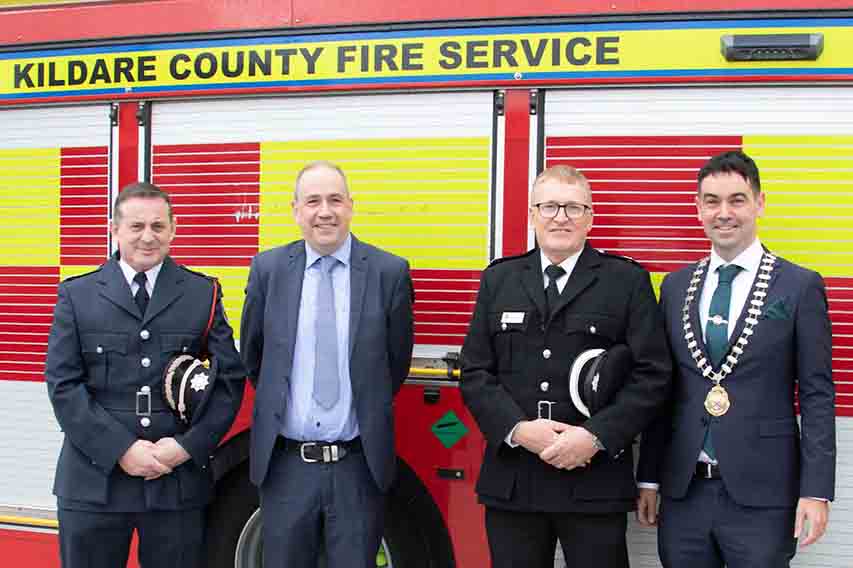NI Fire and Rescue Service (NIFRS) Launches New Online Home Fire Safety Check
Northern Ireland Fire & Rescue Service (NIFRS) has launched its new online Home Fire Safety Check to mark the beginning of Fire Safety Week, running from 30 September to 6 October, which aims to keep people safe from fire.
Last year, NIFRS attended 728 house fires with cooking and electricity supply being the biggest causes.
The online Home Fire Safety Check is an easy-to-follow self-assessment involving answering a series of questions about each room in the home.
Once this is completed, users will receive a personalised fire action plan identifying the potential causes of fire in the home with safety advice to help reduce the risk of fire.

The tool has been developed through a partnership between the National Fire Chiefs Council (NFCC) and Safelincs which has been made available to all Fire & Rescue Services across the UK.
Fire Safety Week is a collaborative partnership with the National Directorate for Fire and Emergency Management in the Republic of Ireland to promote fire safety and help prevent fires in the home.
Northern Ireland Fire & Rescue Service Group Commander Paul Morrow said: “We are pleased to offer a new home fire safety tool for the community.
“The online Home Fire Safety Check is a valuable resource to identify and reduce potential fire risks in the home.
“This Fire Safety Week we’re encouraging all households to complete the assessment not only for themselves but with someone they’re concerned about, especially those who may not have access to the internet.
“If at the end of the assessment the household has been identified as high risk, they will be referred for an in-person Home Fire Safety Check where NIFRS personnel will visit the home to give further practical advice on fire safety.
“House fires can be devastating.
“Even if you don’t think you’re at risk, taking the time to complete the assessment can help save lives and reduce the risk of a fire. There is real value in understanding the causes of fire inside your home, such as smoking, cooking and electrics.
“It’s also important to have a clear fire escape plan and conducting your own home safety checks, such as testing smoke alarms and unplugging sockets, as part of your bedtime routine to keep you and your loved ones safe.”
At the launch of Fire Safety Week hosted by Kildare Fire Service, Keith Leonard, Director at National Directorate for Fire and Emergency Management, Ireland added: “We must be always alert if we are to eliminate potential hazards that could cause fire.
“Being vigilant, keeping mindful of fire safety and practising good fire safety habits is essential.
“We encourage people to follow fire safety advice, do a routine fire safety check at night and have a working smoke alarm on every level of their home.”
To start an online Home Fire Safety Check, please visit:

























